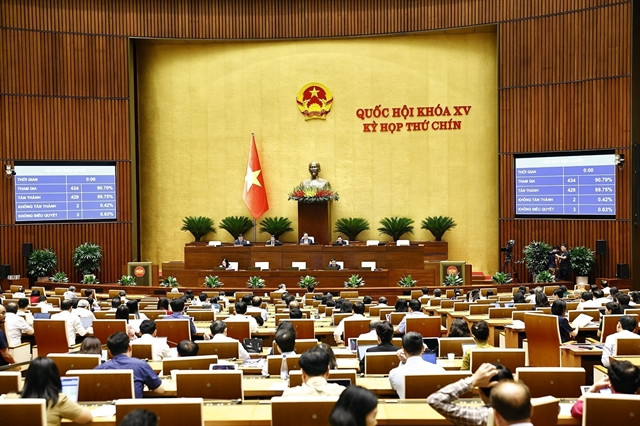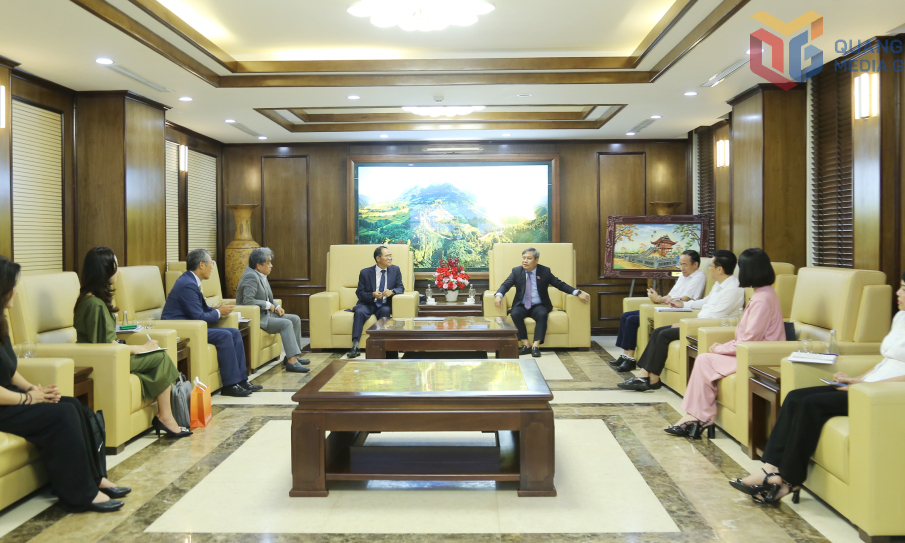NA adopts resolution in support of private sector
The National Assembly on Saturday approved a resolution introducing special policies to boost private sector development, including tax breaks, inspection reform, and green loan subsidies.
With 429 out of 434 legislators present at the sitting on Saturday voting in favour, the 15th National Assembly (NA) approved the resolution on several special mechanisms and policies for private sector development at its ongoing 9th session in Hà Nội.
The resolution that consists of seven chapters and 17 articles is to promptly institutionalise the Party’s guidelines outlined in Resolution No. 68-NQ/TW, with a view to improving the investment and business environment; facilitating private sector access to resources; promoting science, technology, innovation, digital and green transformation; developing human resources; and expanding the participation of private enterprises in national key projects.
It began to take into effect on May 17.
Specifically, according to the resolution, each enterprise, household business, or individual business must not be inspected more than once a year, except in cases where clear signs of violations are found.
The resolution requires strict handling of acts of abuse or taking advantage of inspections and checks to cause difficulties for enterprises, household businesses, or individual businesses.
There will be a strong shift from pre-inspection to post-inspection in association with improving the effectiveness and efficiency of inspections and supervisions. Regarding the management of business conditions, there will be a shift from licensing and certificating to publishing business conditions and post-inspection, except for a few areas that are required to carry out licensing procedures according to international regulations and practices.
The resolution stipulates corporate income tax exemption for small and medium-sized enterprises for three years from the date of issuance of the first business registration certificate.
It also stipulates corporate income tax exemption for two years and a 50 per cent reduction in the amount of tax payable for the next four years for income from innovative start-up activities of innovative start-up enterprises, innovative start-up investment fund management companies, and intermediary organisations supporting innovative start-up.
The determination of tax exemption and reduction periods shall be implemented in accordance with the provisions of the law on corporate income tax.
Individuals and organisations now can enjoy exemption of personal income tax and corporate income tax for income from the transfer of shares, capital contributions, capital contribution rights, rights to purchase shares, and rights to purchase capital contributions in innovative start-up enterprises.
Personal income tax is exempted for two years and tax payable is reduced half for the next four years for income from salaries and wages paid to experts and scientists by innovative startups, research and development centres, innovation centres, and intermediary organisations supporting innovative startups.
Regarding financial and credit support, the resolution clearly states that private enterprises, household businesses, and individual businesses will receive a 2 per cent annual interest subsidy from the State on loans used for green and circular projects and for adopting the environmental, social, and governance (ESG) standards framework.
Lump-sum tax for household businesses will be removed from January 1, 2026 instead of July 1, 2026. To reduce burdens and costs, and encourage them to engage in digital transformation, the resolution stipulates that the State allocates funds to provide free digital platforms and accounting software for the group.






